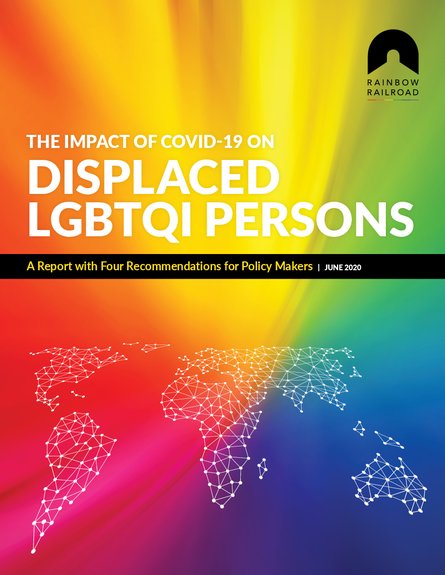
COVID-19 has emerged as a devastating global pandemic, with over 5 million cases and 330,000 deaths as of June 2020. We now know that it is disproportionately affecting those most vulnerable, including LGBTQI Internally Displaced Persons.
Around the world today, more than 70 countries criminalize same-sex intimacy. In these countries, LGBTQI people are routinely arrested, denied basic human rights and are sometimes brutally attacked, tortured, or even murdered. This climate of fear that many LGBTQI people live in is exacerbated when states engage in crackdowns or campaigns that target LGBTQI people. In these instances, police or state authorities often conduct some combination of mass arrests, torture and imprisonment of LGBTQI populations.
In many countries around the world that criminalize samesex intimacy, small grassroots organizations and human rights defenders provide day-to-day support to persecuted LGBTQI populations. However, in the most repressive of states, these networks are virtually non-existent, operate in utmost secrecy and are often targeted by state surveillance or disruption actions.
On account of what might accurately be called an epidemic of violence against LGBTQI individuals around the world, many gender and sexually diverse individuals are forced to flee, or make the excruciating decision to do so. At times, people try to flee to safer locations within their country. But sometimes, they must cross international borders, often to countries that also criminalize same sex intimacy. Also, when LGBTQI folks cross borders, they become residents of refugee camps, where their safety is sometimes compromised due to climates of homophobia, biphobia or transphobia, often aided and abetted by local authorities. This means that many displaced LGBTQI people end up abandoning the camps, opting to live on the margins of society in urban centres.
Civil society organizations around the world and governments that promote and respect human rights have sought to address the plight of LGBTQI refugees in past decades. As a result, there have been important legal developments at the national and regional levels. However, COVID-19 has demonstrated that LGTBQI refugees and displaced persons are vulnerable to the negative effects of the pandemic, especially as borders are temporarily closed.